
Exploring the realm of weight loss pills can be a daunting task given the plethora of options available in the market. This article aims to shed light on the efficacy, safety, and cost considerations of both prescription and over-the-counter weight loss medications. We delve into popular options like Qsymia, Orlistat, and Phentermine, as well as herbal supplements and the latest OTC supplements for men. With a focus on personalized approaches and the potential of injectables, this guide seeks to help you find the best weight loss pill tailored to your unique needs.
Key Takeaways
- The best weight loss pill varies by individual, aiming to help lose 5% to 10% of initial body weight with minimal side effects.
- Qsymia is highly effective for many, but a healthcare professional should guide the choice of medication based on personal health goals.
- Weight loss pills are most effective when paired with lifestyle changes, and over-the-counter options should be approached with caution.
- Phentermine is a common low-cost prescription for weight loss, while Orlistat and other medications offer alternative mechanisms of action.
- Injectable weight loss medications are emerging as alternatives, though cost and personal preferences play significant roles in decision-making.
Decoding Prescription Weight-Loss Medications
Understanding the Role of Qsymia
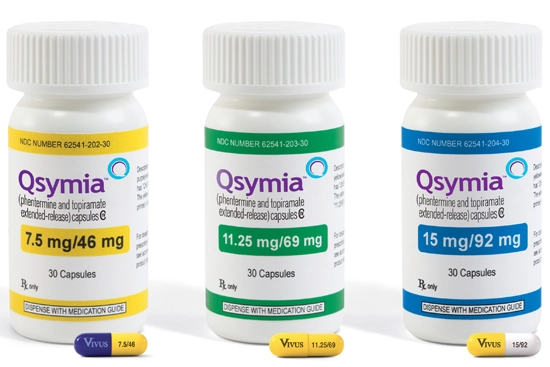
Qsymia has emerged as a popular player in the weight loss pill arena, and for good reason. It’s known for its appetite-suppressing powers, which can be a game-changer for those struggling to control their eating habits. The dynamic duo of phentermine and topiramate work together to help you feel fuller, longer, and to say ‘no thanks’ to those extra snacks.
Qsymia isn’t just a one-trick pony; it’s backed by numbers that speak volumes. In clinical trials, adults taking Qsymia saw an average weight loss ranging from 11.2 to 24 pounds over a year. That’s a significant chunk of weight, and it’s not just a statistical fluke—these results were compared to a placebo, confirming Qsymia’s effectiveness.
However, it’s not all sunshine and rainbows. Some folks decided to part ways with Qsymia before the year was up, with dropout rates hitting up to 40%. The reasons vary, but side effects or a lack of results could be the culprits. So, while Qsymia might be the heavyweight champion of weight loss pills, it’s crucial to step into the ring with all the facts.
Navigating Your Options with a Healthcare Professional
When it comes to shedding those extra pounds with the help of medication, it’s not a one-size-fits-all deal. Different strokes for different folks, right? So, before you dive into the world of weight loss pills, it’s crucial to have a chat with your healthcare provider. They’re the MVPs who can guide you through the maze of options and pinpoint what’s gonna jive with your body and lifestyle.
Starting the convo can be as simple as jotting down your weight concerns on the preexam paperwork. No need to beat around the bush; be upfront about your goals. Your doc’s got the lowdown on everything from the quick-acting Phentermine to the slow-and-steady Orlistat, and even the new kid on the block, Plenity.
Remember, it’s all about finding that sweet spot where efficacy meets your personal needs. Your healthcare pro can help you weigh the pros and cons, considering factors like onset time, potential side effects, and how they fit into your daily grind.
Here’s a quick peek at some options you might discuss:
- Contrave: A combo platter of meds that might tickle your fancy if you’re looking for something to curb those cravings.
- Saxenda: Get your dose in a jab, if you’re not shy about needles and looking for a different approach.
- Xenical/Alli: These could be your pals if you’re into blocking some of that fat from your chow.
And hey, if you’re worried about the cash, don’t sweat it. There are ways to access savings on related medications, so make sure to ask about that too!
The Timeline: When to Expect Results from Weight-Loss Pills
Popping a pill and hoping for an instant miracle is wishful thinking, folks. Weight loss meds are more of a marathon than a sprint. But hey, let’s talk timelines.
Here’s the skinny on when you might start to notice those pounds dropping:
- Phentermine: You could see some action in as little as 2 weeks.
- Orlistat: Also a 2-week wait to potentially kickstart your journey.
- Contrave: Give it around 4 weeks before you start celebrating.
- Plenity: Patience, pal. It’s a 4-week game here too.
- Qsymia: This one’s the long haul, with an 8-week anticipation period.
Remember, these are just the starting blocks. Full benefits take longer, and your doc will have the deets on what to expect for your specific sitch.
Consistency is key! Stick with it for 8–12 weeks, and pair it with a whole-food diet and regular exercise for the best shot at success. And don’t forget, some of these pills require a buddy—like a full glass of water with each dose of Plenity.
Lastly, think long-term. If you’re in it to win it, make sure you can commit to the long game. Some supplements might lose their mojo over time, so it’s all about finding what works for you and sticking to it.
The Lowdown on Over-the-Counter Herbal Weight Loss Aids

The Risks of Unregulated Supplements
When it comes to over-the-counter (OTC) weight loss supplements, the lack of regulation can be a real gamble for consumers. Manufacturers aren’t required to validate their claims, which means you’re often left guessing about both efficacy and safety. Mark Huntington, M.D., emphasizes the difficulty in trusting these products due to the absence of mandatory accuracy in labeling.
It’s crucial to be aware of the potential health implications before diving into any supplement regimen. Especially if you have pre-existing conditions or are on other medications, the risks can be amplified.
Chromium, Green Tea extract, and other herbal supplements might sound promising, but without FDA oversight, there’s no guarantee they’re safe. The FDA does step in when supplements cause harm, but often, that’s after the fact. And remember, these products can interact with your prescriptions, potentially leading to adverse effects or reduced medication efficacy.
Lastly, while some studies suggest marginal weight loss benefits from supplements, the evidence isn’t robust enough to confirm their effectiveness. Always consult with a healthcare professional before starting any new supplement to ensure it aligns with your health needs and lifestyle.
Why Phentermine Reigns Among Prescriptions
Phentermine has long been the go-to prescription for those looking to lose weight, and it’s not hard to see why. It’s the cost-effective champion, often preferred for its ability to help individuals drop a modest but significant percentage of their body weight.
Phentermine’s popularity isn’t just about the numbers on the scale. It’s also about accessibility and a track record that’s hard to beat.
While it’s true that phentermine is in the same family as other stimulants like benzphetamine and diethylpropion, it’s phentermine that doctors reach for time and time again. Here’s a quick rundown of these stimulants:
- phentermine (Adipex-P)
- phendimetrazine (Bontril PDM)
- diethylpropion (generic only)
All of these are approved for short-term use, but it’s phentermine that’s managed to stick around since 1959. Despite its age, recent studies suggest that it might be safe to use for longer than the initially approved 12 weeks, especially if the benefits outweigh the risks for the individual.
When it comes to effectiveness, phentermine often outshines its competitors. While it’s primarily an appetite suppressant, it’s the simplicity and proven results that keep it at the forefront of weight loss prescriptions.
Natural vs. Pharmaceutical: What’s Safer?
When it comes to weight loss, the battle between natural and pharmaceutical options is fierce. Natural supplements may seem like the gentler choice, but without the FDA’s rigorous review process, their safety can be as murky as a dense fog. On the flip side, prescription medications undergo strict testing, but they’re not without their own risks and side effects.
It’s crucial to approach weight loss supplements with a healthy dose of skepticism. Manufacturers of these products aren’t required to validate their claims, leaving you to navigate a minefield of marketing jargon and lofty promises.
Here’s a quick rundown to help you weigh your options:
- Natural supplements: May contain varying concentrations of active ingredients, making effectiveness unpredictable.
- Pharmaceuticals: Typically more consistent in dosage, but may come with a list of potential side effects.
Always consult with a healthcare professional before starting any supplement regimen, especially if you’re already taking other medications. They can help you understand potential interactions and guide you towards the safest choice for your health journey.
Orlistat and Other Players in the Weight-Loss Game
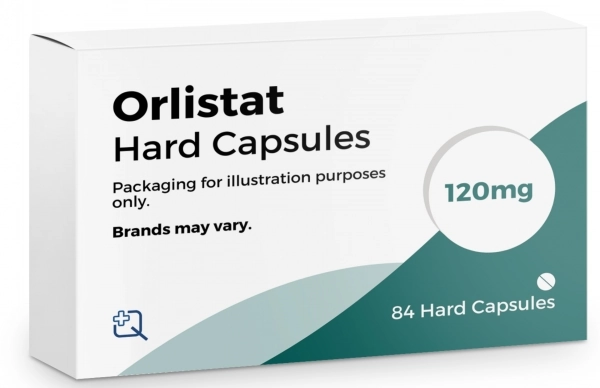
How Orlistat Works in Your Weight-Loss Journey
Orlistat is like the gatekeeper of your gut, blocking some of the fat from your meals from ever making it into your system. It’s a potent inhibitor of lipase, the enzyme that would normally break down the fat you eat, so instead of being absorbed, a portion of that fat just passes through you. This process can be a game-changer for those looking to shed pounds.
Orlistat’s effectiveness isn’t just about the immediate calorie cut. It’s also about the long-term benefits, like reducing the risk of weight regain after you’ve worked so hard to lose it.
While the prescription version packs a stronger punch, the over-the-counter option, Alli, still puts up a good fight against fat absorption. Just remember, it’s not a magic pill; a low-fat, low-calorie diet is your tag team partner in this weight-loss journey.
Here’s the skinny on user satisfaction:
- Rated 4 out of 5 stars based on 1482 reviews.
- Only FDA Approved Over-the-Counter Weight Loss Aid.
- For Adults With a BMI of 25 or above.
- Prevents about 25% of Fat From Being Absorbed Into the Body.
Comparing Orlistat to Its Prescription Cousins
When it comes to shedding those extra pounds, Orlistat stands out with a unique mechanism of action. Unlike its prescription cousins that often work by suppressing appetite or increasing feelings of fullness, Orlistat blocks the absorption of fat in your diet. This means it directly targets the calories from fats, making it a distinctive player in the weight-loss game.
Orlistat’s effectiveness is backed by studies showing significant weight loss in adults. It’s a viable option for those looking to prevent weight regain after shedding pounds.
However, it’s not all smooth sailing. Orlistat can come with some gastrointestinal side effects, which might be a deal-breaker for some. Plus, it’s not a one-size-fits-all solution. Here’s a quick comparison to give you a clearer picture:
- Semaglutide (Wegovy, Ozempic): Enhances insulin secretion and suppresses appetite.
- Tirzepatide (Zepbound, Mounjaro): Mimics incretin hormones, also reducing appetite.
- Liraglutide (Saxenda): Similar to Semaglutide with appetite suppression.
- Phentermine (Adipex): Stimulates the nervous system to decrease appetite.
Each medication has its own set of benefits and potential drawbacks. It’s crucial to navigate these options with a healthcare professional who can tailor the choice to your specific needs and health profile.
The Verdict on Short-Term Use Pills
When it comes to short-term use pills for weight loss, the options are often stimulants like phentermine, phendimetrazine, and diethylpropion. These are typically approved for a maximum of 12 weeks and are meant to be used alongside lifestyle changes. It’s crucial to understand that without ongoing diet and exercise, the weight lost can easily return once the medication is stopped.
While these medications can kickstart your weight loss journey, they’re not a magic bullet. The real challenge often lies in maintaining the weight loss after the course of pills is complete.
Long-term use of stimulant weight loss drugs can lead to abuse and dependence, which is why many healthcare providers may opt for newer, safer options. However, some studies suggest that drugs like phentermine could be used safely for longer periods under careful medical supervision.
Here’s a quick look at some commonly prescribed short-term use weight loss pills:
- Phentermine (Adipex-P)
- Phendimetrazine (Bontril PDM)
- Diethylpropion (generic only)
Remember, finding the right weight loss solution is a personalized journey. It’s essential to navigate this path with a healthcare professional who can balance the benefits and risks specific to your health profile.
Top Picks: OTC Weight Loss Supplements for Men
PhenQ and Capsiplex Burn: A Closer Look
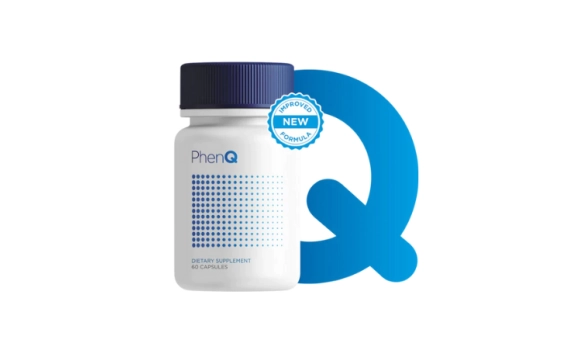
When it comes to over-the-counter weight loss supplements for men, PhenQ and Capsiplex Burn are often at the top of the list. PhenQ is widely celebrated for its multi-faceted approach to weight loss, offering benefits like appetite control and a faster metabolism. It’s particularly noted for its ability to block fat storage, a feature that resonates with many looking to shed pounds.
Capsiplex Burn, on the other hand, shines in the fat-burning department. Its key ingredient, capsicum extract, is central to its formula, providing a significant boost to fat loss efforts. Additionally, Capsiplex Burn includes caffeine for an extra metabolic kick and energy surge, along with chromium picolinate to help keep those pesky hunger pangs at bay.
While both supplements offer their unique advantages, it’s important to consider your personal weight loss struggles when choosing between them. If hunger control is your main battle, PhenQ might be the better option. For those focused on fat burning, Capsiplex Burn could be the way to go.
However, it’s not just about the ingredients. The PhenQ subscription model offers a 15% discount for those committed to a longer weight loss journey, making it a cost-effective choice for sustained efforts. Remember, the best weight loss pill for you is one that aligns with your specific goals and challenges.
C-Dine and Clenbuterol: Cutting Edge or Cutting Corners?
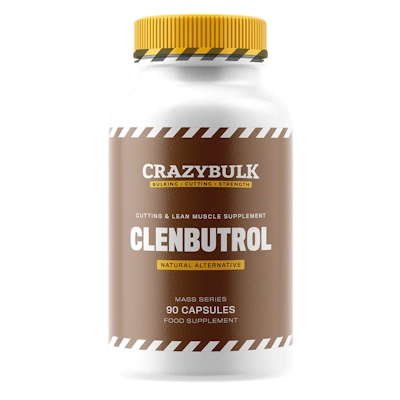
When it comes to shredding fat and maintaining muscle, C-Dine has been making waves as a safer alternative to hardcore performance enhancers. It’s designed with bodybuilders in mind, aiming to replicate the effects of Cardarine. Unlike some supplements that can leave you jittery, C-Dine is stimulant-free, which is a big plus for those sensitive to such ingredients.
Clenbuterol, or Clenbutrol in its supplement form, is another contender in the ring. It’s a simpler formula, boasting a smaller ingredient list and a slightly lower price point than C-Dine. However, when it comes to package deals, C-Dine takes the lead, offering more value for those looking to stock up.
Both supplements promise to boost your fat-burning capabilities, but they differ in composition and cost-effectiveness. It’s essential to weigh these factors against your personal goals and preferences.
Here’s a quick breakdown of their pricing and deals:
| Supplement | Price per Bottle | Supply Duration | Best Deal Offer |
|---|---|---|---|
| C-Dine | $69.99 | 30 days | 5 for the price of 3 |
| Clenbutrol | $64.99 | 30 days | 3 for the price of 2 |
Remember, while both supplements have their merits, it’s crucial to consult with a healthcare professional before starting any new supplement regimen.
Evaluating Effectiveness and Customer Satisfaction
When it comes to weight loss supplements, the proof is always in the pudding—or should we say, the customer reviews? Customer satisfaction is a critical indicator of a product’s effectiveness. But, let’s face it, not all reviews are created equal. Some folks might give a rave review because they love the taste of gummy supplements, while others are all about the results.
Here’s a quick snapshot of how customers are rating their experiences:
| Rating | Percentage | Number of Reviews |
|---|---|---|
| 5 stars | 63.3% | 259 |
| 4 stars | 12.0% | 49 |
| 3 stars | 8.1% | 33 |
| 2 stars | 4.4% | 18 |
While some users report no significant changes in their weight management, others celebrate the supplements for their great texture and taste. It’s a mixed bag, and that’s why it’s crucial to look beyond the stars.
Diving deeper into the reviews, we find a spectrum of experiences. Some users felt nothing different, expressing disappointment in the lack of appetite suppression or weight loss. On the flip side, there are those who swear by their chosen supplement, backing up their satisfaction with visible results. It’s important to sift through the noise and consider the substance of each review.
Finding Your Fit: Choosing the Best Weight Loss Pill for You
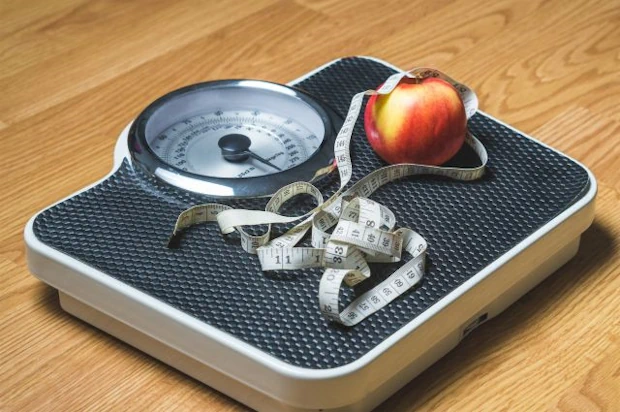
Balancing Efficacy, Safety, and Cost
When it comes to shedding those extra pounds with the help of weight loss pills, it’s not just about finding what works; it’s about finding what works for you without breaking the bank or compromising your well-being. Finding the sweet spot between effectiveness, safety, and affordability is key.
Let’s face it, the cost of weight loss medications can be steep, and not all options are created equal. Here’s a quick rundown to help you weigh the pros and cons:
- Efficacy: Some pills promise the moon but deliver only a handful of stardust. Look for clinically proven results and real-world success stories.
- Safety: Always check for FDA approval and be wary of bold claims from unregulated supplements.
- Cost: Generic versions can save you a bundle, and some insurance plans might cover part of the cost.
Remember, the most expensive option isn’t always the best, and the cheapest might cost you more in the long run if it’s ineffective or harmful.
Ultimately, your choice should be a collaboration with your healthcare provider, taking into account your personal health history and lifestyle. It’s a balancing act, but with the right information and support, you can make an informed decision that aligns with your weight loss goals.
Personalized Weight Loss: A Tailored Approach
When it comes to weight loss, there’s no one-size-fits-all solution. Your unique body chemistry, lifestyle, and weight loss goals should guide your choice of a weight loss pill. It’s like having a suit tailored just for you; the fit is perfect, and the look is on point. Similarly, personalized weight loss plans can be more effective because they’re designed to work with your individual biology and dietary preferences.
- Assess your needs: Consider your health history, dietary habits, and physical activity levels.
- Set realistic goals: Define what you hope to achieve with weight loss pills.
- Consult a professional: Seek advice from a healthcare provider to find the best match.
Remember, the journey to weight loss is a marathon, not a sprint. Patience and persistence are key to achieving long-term success.
While exploring options, you might come across products like Meology, which offers personalized vitamins and supplements. This approach to custom nutrition could complement your weight loss efforts by ensuring you’re getting the right nutrients for your body’s needs.
Beyond Pills: Exploring Injectable Weight Loss Medications
While pills have been a mainstay in the weight loss medication arena, injectables are the new kids on the block making waves. Wegovy, for instance, is an injectable option that’s garnered attention for its effectiveness in adults with obesity or excess weight, especially those with weight-related conditions.
Injectables like Wegovy offer a different approach to weight loss, and they’re worth considering if you’re looking for alternatives to oral medications. Here’s a quick rundown on what you need to know about these injectable options:
- They’re typically prescribed for individuals with a BMI over 30, or over 27 with weight-related conditions.
- Injectables work by mimicking hormones that regulate appetite and food intake.
- They require a healthcare provider’s supervision due to potential side effects and the need for proper dosing.
While the cost can be higher than pills, many find the potential benefits of injectable weight loss medications to be worth the investment. Remember, the best weight loss strategy is one that’s sustainable and tailored to your individual needs.
It’s crucial to balance the pros and cons, including efficacy, safety, and cost, when considering injectable weight loss medications. Always consult with a healthcare professional to determine the best course of action for your health and weight loss goals.
Wrapping It Up
Alright, folks, we’ve scoured the landscape of weight loss pills and given you the skinny on what might just tip the scales in your favor. Remember, the best pill is the one that works for you, fitting snugly into your lifestyle, health goals, and wallet. Whether it’s a prescription option like Qsymia or an OTC champ like PhenQ, the real magic happens when you pair it with healthy chow and a bit of sweat. And hey, if pills aren’t your jam, there are other options out there. Just make sure to sidestep those shady ‘miracle’ pills online – your body deserves better. Keep it real, keep it safe, and here’s to finding that sweet spot on your weight loss journey!
Frequently Asked Questions
What is the best prescription weight-loss pill?
The best weight-loss pill varies by individual. It should help you lose 5% to 10% of your initial body weight with minimal side effects. Other factors include dosage frequency and cost.
How long does it take for weight-loss pills to start working?
The onset of action for weight-loss pills can vary: Phentermine and Orlistat may take 2 weeks, Contrave and Plenity around 4 weeks, and Qsymia about 8 weeks. Full benefits can take longer.
Are OTC herbal weight loss pills safe and effective?
OTC herbal weight loss pills are not FDA-regulated and may contain dangerous or counterfeit chemicals. It’s crucial to buy from reputable sources if considering these supplements.
Why is Phentermine a popular weight-loss prescription?
Phentermine is commonly prescribed due to its affordability and potential to help people lose about 3% to 5% of their initial body weight.
What are the best OTC weight loss supplements for men?
Top OTC weight loss supplements for men include PhenQ, Capsiplex Burn, and C-Dine, known for strong ingredient profiles and positive customer reviews.
Is there a universally safest and most effective weight-loss pill?
No single weight-loss pill is considered the safest and most effective for everyone. Qsymia may be effective but is a controlled substance and not suitable for all individuals.